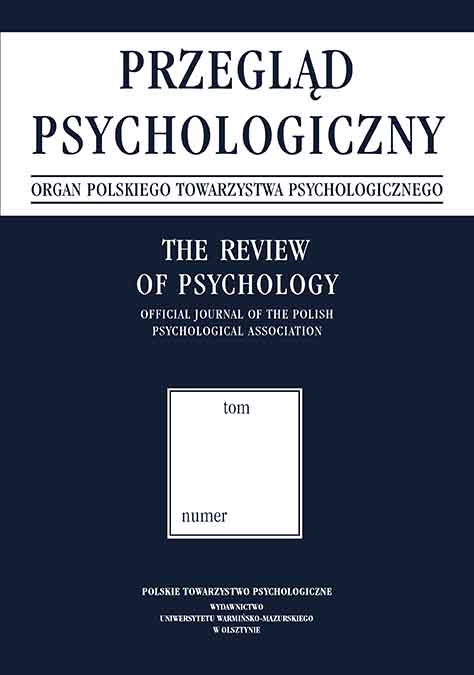Dynamika zmian poziomu funkcjonowania poznawczego wśród pacjentów po infekcji SARS-CoV-2 – propozycja zdalnej oceny neuropsychologicznej w badaniu podłużnym
Dynamics of changes in the level of cognitive functioning among patients after SARS-CoV-2 infection - a proposal for remote neuropsychological assessment in a longitudinal study
Author(s): Ewa Malinowska, Dominika Żarnecka, Emilia Łojek, Anna Rita Egbert, Małgorzata Gambin, Natalia Gawron, Karolina Hansen, Paweł Holas, Agnieszka Pluta, Marcin Sękowski, Marta Sobańska, Julia WyszomirskaSubject(s): Neuropsychology, Health and medicine and law
Published by: Wydawnictwo Uniwersytetu Warmińsko-Mazurskiego w Olsztynie
Keywords: COVID-19; long-COVID; cognitive function; neuropsychological assessment; remote testing methods;
Summary/Abstract: Purpose: The purpose of the longitudinal study was to assess the cognitive functioning of individuals who had COVID-19, to determine the dynamics of changes observed in this area over 3-4 months, to compare the patients' results with those of the control group, and to verify the usefulness of a new method of remote neuropsychological assessment.Method: a longitudinal study was conducted using the Brief Test of Adult Cognition by Telephone (BTACT) neuropsychological assessment tool, which was translated for the purposes of the study. The study included subjects following SARS-CoV-2 infection (COVID(+) group and control subjects (COVID(-). Both groups were studied twice, 3-4 months apart. The study was conducted from July 2020 to January 2022.Results: Data comparisons were performed using analysis of variance for repeated measures in a mixed design. Compared to the COVID(-) group, the COVID(+) group had significantly lower scores on the first and second measurements of the Backward Number Repetition Test and on the first measurement of the Number String Test. In addition, an improvement was observed in the scores obtained by the COVID(+) group in the second measurement compared to the first measurement in: Rey's 15-word test, in both the immediate and deferred repetition conditions; the Backward Number Repetition Test, the Number String Test and the Backward Counting Test.Conclusion: the results indicate a decrease in working memory function and inductive reasoning in subjects in the COVID(+) group compared to the COVID(-) group. In addition, the study indicates the usefulness of the BTACT in tracking the change in the level of cognitive functioning over time in subjects after SARS-CoV-2 infection. Tests to assess working memory (Rey's 15-word test, Backward Number Repetition Test) and inductive reasoning test (Number String Test) seem to be particularly helpful in monitoring the aforementioned changes.
Journal: Przegląd Psychologiczny
- Issue Year: 67/2024
- Issue No: 1
- Page Range: 27-43
- Page Count: 17
- Language: Polish

